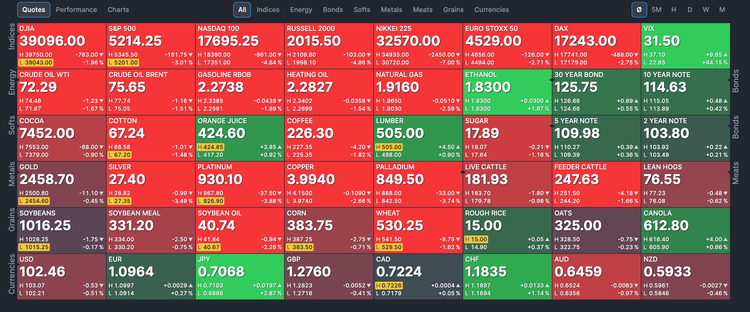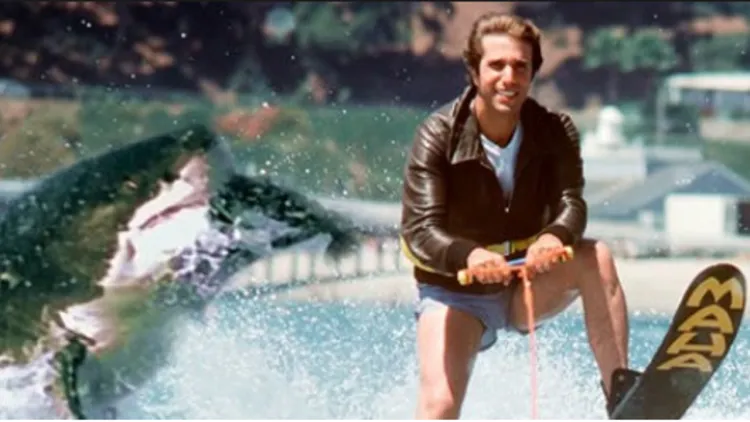How Passive Investing Saved My Life

Passive investing saved my life in many ways, but not in the way you think. It didn't swing from the trees like Tarzan and snatch me away from a charging Rhino nor did it give me a Flu shot. It did it in two main ways: Saving my time and avoiding costly mistakes. How? Read on my friend, read on.
I know many people that lived through the Real Estate boom and implosion in 2008. My wife and I bought our first home and first rental property back in 2004 and 2005. Prices and values were going up and up and we managed to swing these two properties financially. I was also trading 'machine learned' market models to help my trend trade Forex and some stocks. I thought I had found the means to a quick retirement and wealth. Everyone thought they did.
I was wrong.
First the Boom, then the Bust
When the Real Estate bust happened, it wiped out friends and colleagues. Luckily we had the rental property rented out and it was generating enough income to cover all expenses, so we operated at break even. A friend of mine blew out spectacularly. He nearly lost everything and is now - 10 years later - finally recovering.
After all the injection of money from the Federal Reserve and the backstopping of the financial institutions, the markets stabilized. Not until after Trillions of dollars of wealth evaporated. I don't need to go into a history lesson here, but it was the closest this generation ever got to a real Great Depression.
My 401K shrank, my Forex models blew up, my stock models stopped working, my office was close to shutting down. It was horrible but it was the best thing to ever happen to this us and this generation.
Cynicism and Clarity
I hear it all the time, the Millennials aren't investing in the stock market. How are they going to save for their retirement? Why aren't they stock trading like their parents? They're just passive investing and it's costing us money!
The Millennials are cynical, and rightfully so. This generation of people applies logic and well thoughtful arguments to cut through the bullshit. They see Wall Street's game and don't want to play it UNLESS it's on their terms. That's clarity and good for them. They know the system is rigged.
Rigged System - Long-Term Investing
It is rigged. The entire stock market is rigged. Howard said it best here:
The markets rarely frustrate me but the players do. I invest and trade assuming the markets are rigged…because they are.
The markets are one big reflection of a hidden shit-show run by shit people. Ok I'm generalizing here and there are some good people in the markets but for the most part it's one big scam meant to separate you from your money. Usually via fees but often through bad investment decisions.
Here are a few off the top of my head:
- Brokerage Fees
- Trading Fees
- Expense Ratios (aka Fees)
- Management Fees
- Hot Stock Tips
Like Howard, I don't hate the markets at all, I just want to outsmart the masses. I didn't know how until I read this book, "A Random Walk Down Wall Street."
The gist of the book? Long-term investing always wins.
Long-Term / Passive Investing
A Random Walk Down Wall Street takes a data-driven approach to the markets and shines light on all the 'hocus pocus' market participants believe in. Elliot Wave, Technical Analysis, Day Trading, etc. Can you make money using Technical Analysis, sure. It might work now but won't work at some point in the future. How about Elliot Wave? Of course, a broken watch is right twice a day.
Investors get tripped up when they do stuff like Day Trade. They churn up fees, make some money, have to pay taxes, etc. Then one day the market turns against them and they give back a lot of the gains. I've seen many a 'day trader' blow up and this one is a classic. Yes, there are ways to limit your exposure by stops or risk size positioning but sometimes you need a blowout to reevaluate your choices.
The Markets are great teachers if you only listen and learn.
I switched from active trading to passive trading around 2010. I stopped chasing stocks and forex markets after my models blew up. I realized that I was just being lucky. A rising tide lifts all ships and I mistook luck for brains.
Instead, we started maxing out my 401K's and IRAs. We saved up more money in our accounts, paid off debt where applicable, and remodeled our kitchens and bathrooms.
The Advice
I took the advice of the book and started doing the following:
- Invest in index funds
- Buy funds with low-cost fees
- Don't market time
- Dollar-cost average (easy to do in a 401k)
- Assemble a portfolio that is diversified across many assets
- Adjust my portfolio based on my risk tolerance and age
- Sit on my hands
- Turn off the screens and focus on my hobbies
Well, number 8 isn't in the book but the first seven are. Once I started doing 1 through 7, I started doing better. I sat on my hands because I realized that I suffer from market panic just like everyone else. I wanted to time the market and look like a hero but that's just luck. Like right now, there's a Wall of Worry in the markets, I call it the Trump Trade. No one knows which way the market will go in the short term but in the long run, it goes up.
Do I own a few individual stocks? Sure but that's really mad money for me. I barely trade and I save money by not creating taxable events and commissions via my retirement accounts. I have more time to spend with my family and invest my time with them, instead of staring at the screen and building models that may or may not work. If the market goes down? So what? I'll just buy more shares in my funds when my 401k contribution hits.
So what if the Markets are rigged? People have such a short attention span with everything that they can't see that long-term and passive investing is the way to success. It has been for me. I can sleep at night knowing that I've saved time, and money, and stressing about the future.





Member discussion